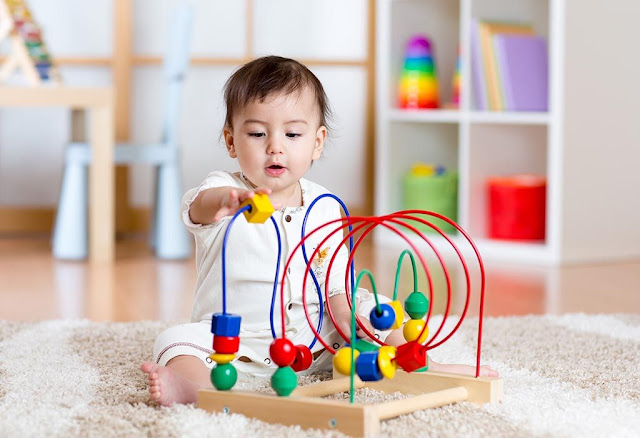Montessori education highlights the importance of movement and learning in a profound manner which makes the nursery classrooms instantly recognizable. Here, you will come across children working in groups with customized learning materials. The homeschool Montessori Training Method promotes intensive, self-motivated growth for children in every critical area of their development - emotional, cognitive, physical, and social. So, let’s explore the eight principles of Montessori education:
- Choice and perceived control: In Montessori classes, children have the freedom to choose their work. Often, children arrive early in the morning, gaze at their classroom surroundings, and decide what to do. There is a mentor who always guides the children during their activities. Mostly, the choices of children are confined only by the materials that teachers have shown them how to use.
- Impact of movement on cognition and learning: In Montessori training, movement and learning go hand in hand. For example, infants are made to carry out several simple activities like washing tables, getting certain objects, putting wooden map pieces in place, etc. There are endless possible examples. In the Montessori environment, learning is accomplished through movement. It holds true for toddlers and those studying at the Middle School level.
- Interest in human learning: Educators frame homeschool Montessori training in a fashion so that it arises the curiosity among students relating to a particular phenomenon or a subject matter. Here, the children are also allowed to pursue learning that fascinates them at large. So, you can guess this entire system is grounded on intrinsic motivation.
- Contextual learning: When the learning procedure is context-based, its impact is deeper than abstract context learning methodologies. It’s the very reason for which Montessori study materials have concrete properties that develop both the isolation of quality and the isolation of difficulty. A child’s critical thinking process gets enhanced primarily driven by the control of flaws embedded with the study materials.
- Extrinsic rewards and motivation: Research studies highlight that children who are given prizes for learning have more chances to rush through a learning activity. There is less scope for they will return to that activity. This is the reason why ranking and grades are generally absent in a Montessori school. Every teacher has his/her own way of encouraging children with the objective of developing intrinsic motivation in them.
- Peer interaction: Children are generally 6-9 years old while studying in a Montessori school. It enables them to learn from each other. A child who is aware of the learning objective reinforces his/her ideologies by teaching that module to another child.
- Adult interaction: According to Maria Montessori, the interaction between the teachers and children should be neither ‘too little’ nor ‘too much.’ There must be a balance between these parameters in homeschool Montessori training. Yes, the Montessori teachers should help a child in solving problems but not so long enough that they become pissed by it. Teachers should allow the children to identify, engage, and pace their learning independently with the instructions their teachers give them.
- Order in the environment: Needless to say, a Montessori classroom is an orderly place where children know their expectations. When any individual enters a Montessori classroom, they notice a stark difference in the environment. Here, the teacher’s most important goal is to facilitate the learning process of students. Also, the children know how the materials should be placed and in what order.
Wrapping Up
As you can understand there are various facets of homeschool Montessori training. Whatever it is, Montessori learners get the freedom to make connections and probe deeply into the subject matter. They think critically and work hand in hand only to act with integrity. Is there anything more you can expect from the children?




